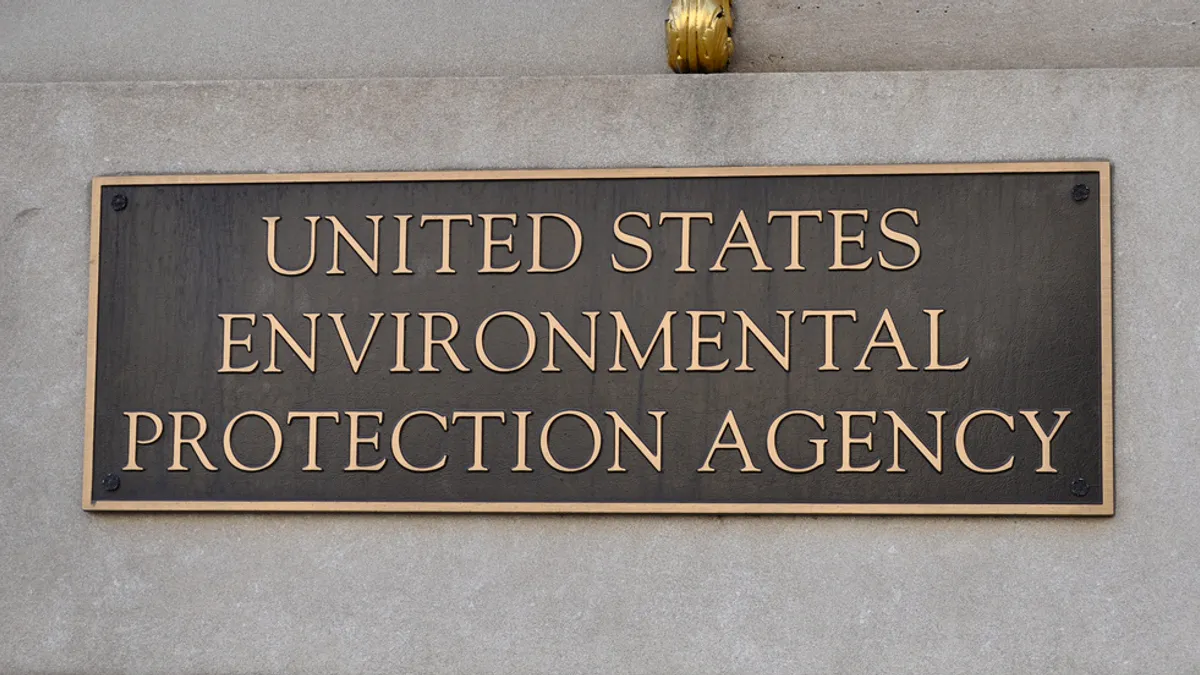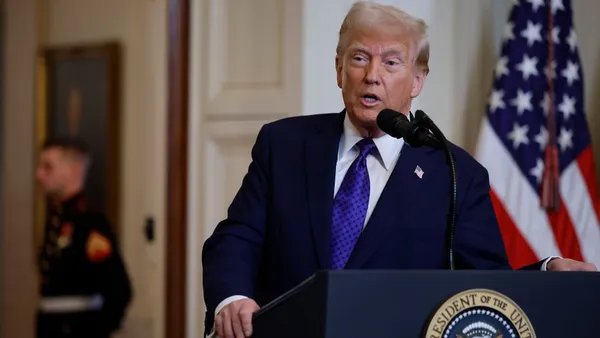Dive Brief:
- Reuters reports on an internal memo at the U.S. Environmental Protection Agency which indicates the agency is moving ahead with employee buyouts and a voluntary staff reduction program, with plans to complete the push by September of this year
- Last month, the EPA set aside $12 million for voluntary buyouts and early retirements in an effort to reduce the agency's workforce, according to an internal budget document outlining the plan.
- The White House's proposed budget for the agency would cut its funding more than 31%. EPA has about 15,000 employees but President Trump wants to reduce that by about 3,200.
Dive Insight:
EPA's staff reduction must still be approved by the Office of Management and Budget, but Reuters reports the memo detailing the plan was sent to all employees at the agency.
"Early outs and buy outs ... can help us realign our workforce to meet changing mission requirements and move toward new models of work," the memo read, according to Reuters. "The authority encourages voluntary separations and helps the Agency complete workforce restructuring with minimal disruption to the workforce."
E&E News reported last month the EPA was setting aside millions for voluntary buyouts and early retirements, based on an internal budget document outlining the plan. Agency officials said the program is similar to one President Obama enacted four years ago, which spent more than $16 million to reduce the workforce by about 450.
President Trump has proposed a wide range of cuts to pay for higher defense spending, but the EPA's budget is hardest hit.
Released last month, the White House's budget proposal slashes EPA's budget by $2.6 billion to $5.7 billion — a cut of more than 31%, though the budget is not expected to pass Congress as proposed. The White House is also proposing deep cuts to research at the Department of Energy.
The Office of Energy Efficiency and Renewable Energy would see a 69% budget cut compared with 2016 levels; the Office of Fossil Energy budget would be reduced 44%; the Office of Nuclear Energy budget would decline by nearly 30%













